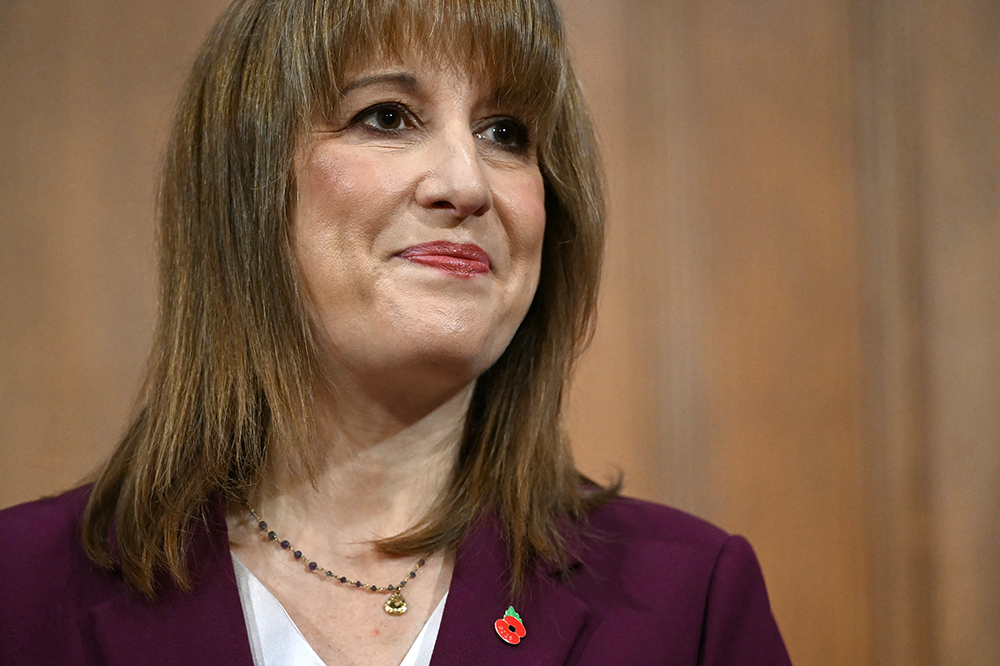Elite sport is a selfish business. It’s all about achieving success for yourself. However much others have contributed to your success – your teammates, your coaches, your sports administrators, and the taxpayers and sponsors who pour money into you and your sport – they merely share your reflected glory. Even nationality itself is negotiable: if you can achieve your personal ambitions under a different flag, so be it.
In the end, it’s all about you.
Richardson’s choice highlights how little nationality seems to matter these days for elite and professional sports people
Given that ‘me first’ mentality of elite sportsmen and women, it’s no surprise that cyclist sprinter Matthew Richardson, fresh from winning two silvers and a bronze medal for Australia at this month’s Paris Olympics, has announced he is changing his official nationality from Australian to British. The 25-year-old dual citizen was born in Britain before his immediate family emigrated to Australia when he was a small boy. Most of his extended family is still in Britain and, likely the deciding factor, his girlfriend is 21-year-old gold-medallist Emma Finucane, who in Paris became the first British woman to win three medals at an Olympic Games since 1964.
There’s no question that Richardson’s decision to switch nationalities is a boon for Team GB. Besides his medal success in Paris, Richardson shared in winning the team sprint world championship in 2022, and won two Commonwealth Games gold medals. He and Finucane could be the golden couple of British cycling, the next Sir Jason and Dame Laura Kenney.
In his official announcement, Richardson said: ‘Switching nationality was a difficult decision, and not one I took lightly. It was a personal choice, made after careful consideration of my career and future. It’s not something I decided on quickly or easily.’
In elaborating on his decision, however, Richardson revealed not only that the switch was on the cards for a long time, but that he also made a personal career calculation.
‘It had been in the back of my mind for many years. Holding dual citizenship, it’s always been a possibility,’ he told the Times. ‘If it was going to happen, it had to be after these Games. Now is the right time for me, the right time in terms of my sport, that’s why I went for it.’
It could well be that, after Australia’s Olympic campaign, when Richardson’s national team did not quite fulfil the medal hopes resting on its handlebars, that Richardson looked across at Team GB and thought he could achieve more in red, white and blue than green and gold. To be fair, Richardson is generous in his praise for his own Australian coaches, teammates and supporters, while hoping they ‘can understand and support me as I continue to give my best in the sport I love.’
While Australia’s cycling federation was blindsided by Richardson’s decision – if he had been in the corporate world and told his employer he was joining an arch-competitor, he and his box of personal effects would have been on the street in an hour – it was magnanimous, even making a joint statement with their departing champion.
‘The announcement of Matt’s switch is disappointing and came as a surprise. We also understand that the desire to compete for a country one was born in can bring forth strong emotions, ’Jesse Korf of AusCycling said, before pointing to the depth of talent in Australian cycling ready to take Richardson’s vacancy.
Who said Australians aren’t good losers? Perhaps AusCycling, or the Australian government, should charge British Cycling a transfer fee for the very considerable time and money Australians have invested in Richardson’s success – especially if Team GB was aware of what Richardson was planning and AusCycling wasn’t.
Nobody’s condemning Richardson for following his instincts and doing what he considers is best for him. There’s no doubt his family ties to Britain mean a great deal to him, and he wouldn’t be the first lovestruck young man to move halfway across the world to join his young lady.
Yet Richardson’s choice, and how he explains his career as well as personal aspirations, highlight how little nationality seems to matter these days for elite and professional sports people. If it’s a choice between the best for yourself and the honour of representing your country, there’s no contest: follow the money. But in that, he’s not alone. That’s a big generational factor in the slow death of Test cricket, as more of the best and brightest batting and bowling prospects are lured by the immense millions of dollars, pounds and rupees to be earned plying one’s trade in the likes of the Indian Premier League and the Hundred, rather than waste their earning potential, as they see it, in far less lucrative Tests and one-day internationals.
Good luck to Matthew Richardson. He gets his girl, and if his switch to Team GB helps win him gold in the 2028 Los Angeles Olympics, Australians will both celebrate and lament his success. No doubt, too, that one-eyed Australian broadcasters in LA will unofficially count any medals he wins as Australian.
But Richardson’s ‘defection’ is a reminder that elite athletes live in a different world to the rest of us, a mollycoddled world in which they are always the centre of attention and that loyalty, whether to a team, or a nation, is a malleable and convertible quality. If an elite sportsman’s nationality is considered a flag of convenience, the rest of us shouldn’t be surprised when it’s changed out of the blue.







Comments